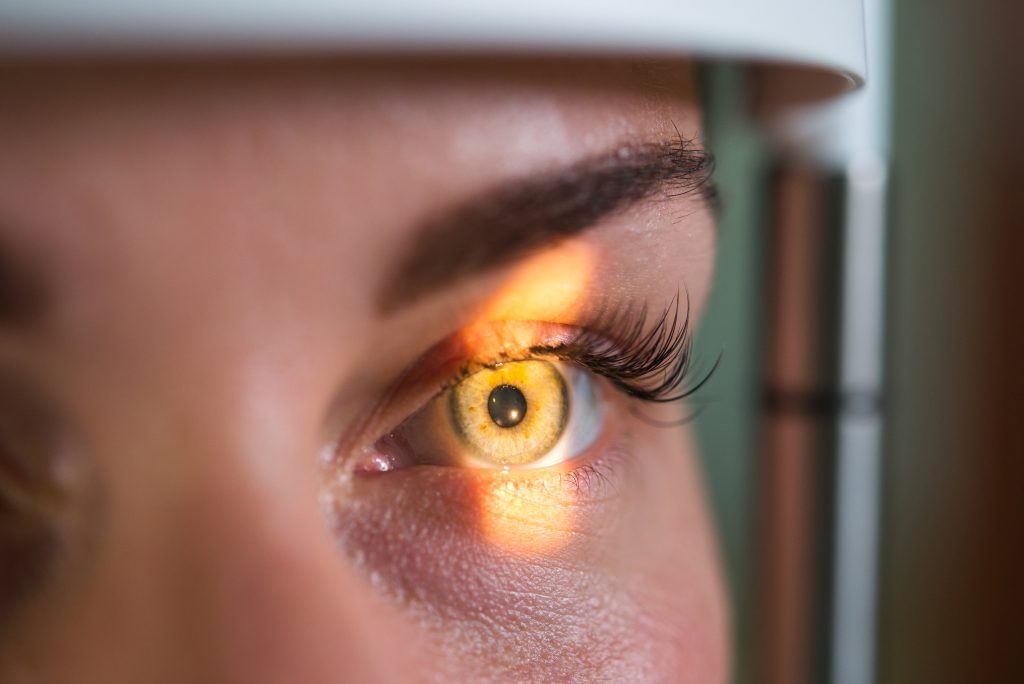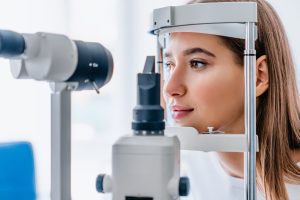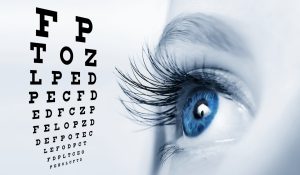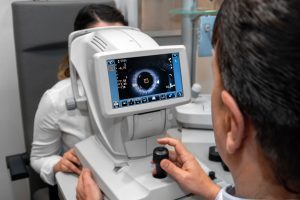How long does it take to go blind from retinal detachment?
Frequently Asked Questions
How long does it take to go blind from retinal detachment?
It depends on the severity of the retinal detachment. In most cases, if treated promptly with surgery, vision loss can be prevented. If left untreated, retinal detachment can cause total blindness within a few hours or may be stable for weeks to months. It is important to have regular eye exams so that any changes in your vision can be detected early and treatment can begin quickly to preserve sight. It is impossible to know the difference between retinal detachment and other floaters based on symptoms or history alone, a thorough in-person evaluation of the inner eye is paramount for proper diagnosis.
If you're recovering from retinal detachment, it's crucial to have regular follow-up appointments
Retinal detachment is a serious eye condition that occurs when the retina, the thin layer of tissue at the back of the eye that sends visual signals to the brain, separates from its normal position. This can cause permanent vision loss if it’s not treated promptly.
If you’re recovering from retinal detachment, it’s crucial to have regular follow-up appointments with your optometrist or ophthalmologist. Here’s why:
- Monitoring Healing Process: After surgery for retinal detachment, the eye needs time to heal. Regular check-ups allow your doctor to monitor the healing process and ensure that the retina is reattaching correctly. They can also check for potential complications, such as infection, inflammation, or high eye pressure (glaucoma).
- Assessing Vision Changes: Retinal detachment and its treatment can lead to changes in your vision. These can include blurriness, floaters, flashes of light, or a curtain-like shadow over your visual field. Regular eye exams help your doctor monitor these changes and provide necessary treatment or adjustments to your corrective lenses.
- Checking for Recurrence: Unfortunately, retinal detachment can recur, even after successful surgery. Regular eye exams allow for early detection of any signs of recurrence, which can be treated promptly to prevent further vision loss.
- Managing Other Eye Health Issues: If you have retinal detachment, you may be at risk for other eye health issues. Regular eye exams can help detect and manage these conditions. For example, people with high myopia (nearsightedness) are at higher risk for retinal detachment, and they may also be at risk for other eye conditions like glaucoma.
- Guidance and Support: Regular visits to the optometrist can provide you with the guidance and support you need during your recovery. This can include advice on activities to avoid, symptoms to watch out for, and steps you can take to support your overall eye health.
Remember, maintaining regular follow-ups with your optometrist or ophthalmologist is a crucial part of your recovery from retinal detachment. This will help ensure the best possible outcome for your vision and eye health.

Related FAQs
Wearing glasses or contacts can indeed affect dry eye symptoms, but the impact varies. Glasses can help shield the eyes from environmental factors that exacerbate dry eye, such as wind or air conditioning. On the other hand, contact lenses can sometimes worsen dry eye symptoms by absorbing tear moisture or by causing irritation. Certain types of contact lenses are designed to be more breathable and retain moisture better, which may be suitable for people with dry eyes. It’s crucial to discuss with an eye care professional to find the most appropriate type of contact lens or glasses. Proper care and hygiene when using contacts, along with regular breaks from screen use, can help minimize dry eye symptoms.
Dry eye syndrome can be both a temporary condition and a chronic disease, depending on its cause and severity. Environmental factors or certain life situations, such as screen use or air travel can cause temporary dry eye. Chronic dry eye, on the other hand, may result from systemic diseases, medication side effects, or age-related changes in tear production. Management and treatment can alleviate symptoms, but chronic dry eye often requires ongoing therapy. It’s important to consult with an eye care professional for an accurate diagnosis and treatment plan. Understanding the underlying cause is key to determining whether dry eye syndrome will be a temporary issue or a chronic condition.
Yes, some specific exercises and therapies can help relieve dry eye symptoms. Blinking exercises, for example, can help improve meibomian gland function and tear film stability. Warm compresses applied to the eyes can also stimulate tear production and release oils from the glands in the eyelids. Gentle eyelid massages can help spread the oils evenly across the eye surface, reducing dryness. Using a humidifier to add moisture to the air and taking regular breaks to rest the eyes during screen time can also be beneficial. Newer technologies such as IPL (Intense Pulsed Light) and RF (Radio Frequency) are also becoming available. Consulting with an eye care professional for personalized advice on exercises and therapies is recommended.
Sleep plays a crucial role in managing dry eye syndrome. Poor sleep can lead to insufficient eye lubrication and worsening dry eye symptoms. During sleep, the eyes rejuvenate and produce the moisture needed for the next day. Good sleep hygiene practices can help ensure the eyes are well-rested and hydrated. It’s also important to avoid sleeping with any airflow directly hitting the face, as this can dry out the eyes. Establishing a regular, restful sleep schedule can significantly improve dry eye symptoms.
Indeed, some medications can exacerbate dry eye symptoms. Diuretics, antihistamines, antidepressants, and some blood pressure medications are known to reduce tear production or alter tear composition. It’s important to review any current medications with a healthcare provider to determine if they could be contributing to dry eye symptoms. Sometimes, alternative medications with fewer dry eye side effects can be prescribed. Always consult with a healthcare professional before making changes to medication regimens. Patients should also stay hydrated and consider using artificial tears if taking medications known to cause dryness.
Yes, it is quite common for dry eye symptoms to worsen in certain weather conditions. Dry, windy, or smoky environments can lead to increased tear evaporation, exacerbating symptoms. Conversely, high humidity can sometimes alleviate dry eye symptoms because the air is more saturated with moisture. Cold weather, especially during winter when indoor heaters are used, can also dry out the eyes. It’s advisable to use humidifiers in such conditions to maintain indoor humidity levels. Wearing wraparound glasses or protective eyewear outdoors can help shield eyes from harsh conditions.
West Edmonton Vision Clinic
Visit our vision clinic in central West Edmonton for comprehensive eye exams, contact lens fittings, glasses, and more. LL Eyecare Centre is dedicated to providing the highest quality optometric services and products to our patients. Our team of experienced optometrists is here to help you with all of your eye care needs. Schedule an appointment today!
Clinic Hours
Monday Closed
Tuesday 9:00-5:00
Wednesday 9:00-5:00
Thursday 9:00-5:00
Friday 9:00-5:00
Saturday 9:00-2:00
Closed Sunday / Holidays




